64 hours. 23 hours. 42 hours. 28 hours. Somewhere on a grassy plain trying to figure out if I should spend my days hunting down one of many pending side quests. Somewhere deep in the ocean chasing mermaids. Somewhere making preparations for my next strategic battle. These are all the places I’m willing to leave behind — unexplored and unresolved — because I’m wondering if I give a damn about JRPGs anymore.
It wasn’t always this way. I used to get excited about colourful JRPG worlds. I wrapped myself in their stories, and despite hanging on to the words of favourite characters while scoffing at the more annoying ones — I saw their tales to the very end.
It’s somewhat of an indescribable feeling experiencing a new locale in any JRPG. There’s an overwhelming sense of dread to find yourself planted squarely in a hometown. There’s every nook and cranny to investigate, every pot to overturn or drawer to open or local cuisine to discover cooking on a stove, every NPC to talk to until you find the one that progresses the story. Then, as you familiarise yourself with one area, there are dozens more in which to repeat the entire process over again. It’s overwhelming, yes. But it’s also exhilarating once you’ve moved beyond the initial fear.
These days, I’ve found myself in a similar love/hate relationship, but with JRPGs in general.
Less Accepting of the Expected
Part of it really is just me. It’s my fault. I take the time to enjoy games, but these days I find myself less tolerant of shoddy writing or bland characters. I’m so acquainted with the standard JRPG plot twists at this point that I can see them coming from a mile away. Try as I might to suspend belief, those subtle cues are just no longer so subtle.
This was the case most recently with Xenoblade Chronicles. It’s a visually stunning game with very little in the way of interesting characters. Now in my 60th hour, I’m still waiting for a giant reveal that will have me singing its praises.
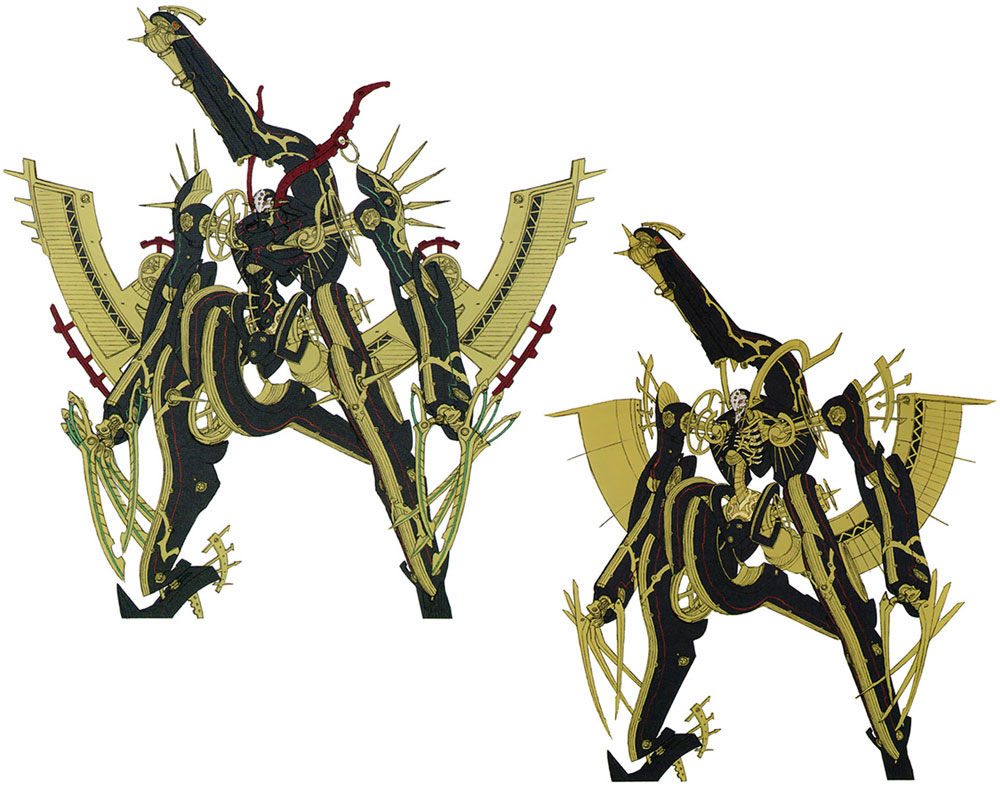
Without giving away too many spoilers, there’s a disconnect in a few instances where players’ comrades were used to the advantage of their adversaries, the Mechonis. The writing hinted at this heavily, cluing in the player long before revealing it in the actual game, and thereby cheapening the experience when the characters finally learned it themselves. Subsequent reveals ended up being less clever foreshadowing and more of an incredulous sort of feeling, like watching a one trick pony. It made for a frustrating, drawn-out experience.
Then there are games like Suikoden. Very early on, the game sets up the makings of a terrible event to come.
As the Hero’s father prepares to leave for war, the game hints that he would not be returning home by framing the scene through a Last Supper scenario. As members of the household gather to have dinner, there’s a sense that this would be their last together. Later that night, the father watches over his sleeping son before heading off and remarks, “…it’s not as if we’ll never meet again.” The scene felt like a permanent farewell, so imagine my surprise when Suikoden did nothing of the sort.
Sure, the tragedy of losing a father was eventually realised, but the game went even further, changing the relationship between father and son, and son to friends. It was an extremely clever misdirection.
In fairness, Xenoblade Chronicles, as with any JRPG, should not be written off until the very end. Some endings might seem like the typical ‘fight for justice’ scene, but hidden in the ending movie could be something so profound that all those hours spent getting there would be worth it. These days, though, I am finding it a lot harder to have the patience for 80+ hours of world travelling with uninteresting characters only to be rewarded in the last 20 minutes, regardless of how beautiful the journey may have been.
All Beauty and No Heart
Xenoblade Chronicles artfully transitioned from day to night. In the shimmering soft light of Satorl Marsh’s night time transformation from a dull, heavy daytime fog, I fell in love. I lost myself in the hymns that ushered in those magical nights. I was reminded that the visuals of a game’s world can cater to the longings for a fantasy realm with seamless effort. Once I left Satorl Marsh, I spent the next 30 hours wishing to stumble upon something of its calibre of beauty and its captivating emotional state again. Grand entrances to even grander plateaus awaited, but few were as wonderful in a love-at-first-sight sort of way.
That’s the thing too, right? Beautiful graphics and settings are things I’ve been so spoiled by from my earlier days spent with Squaresoft/Square Enix games that I’m no longer willing to accept them as “wow” factors. They’re standards.
Every JRPG has to sell its setting, and many are pretty good at creating worlds. Each town has distinct characteristics — from the decadent, richer societies to the oppressive slums — and every area is matched with a seasonal location.
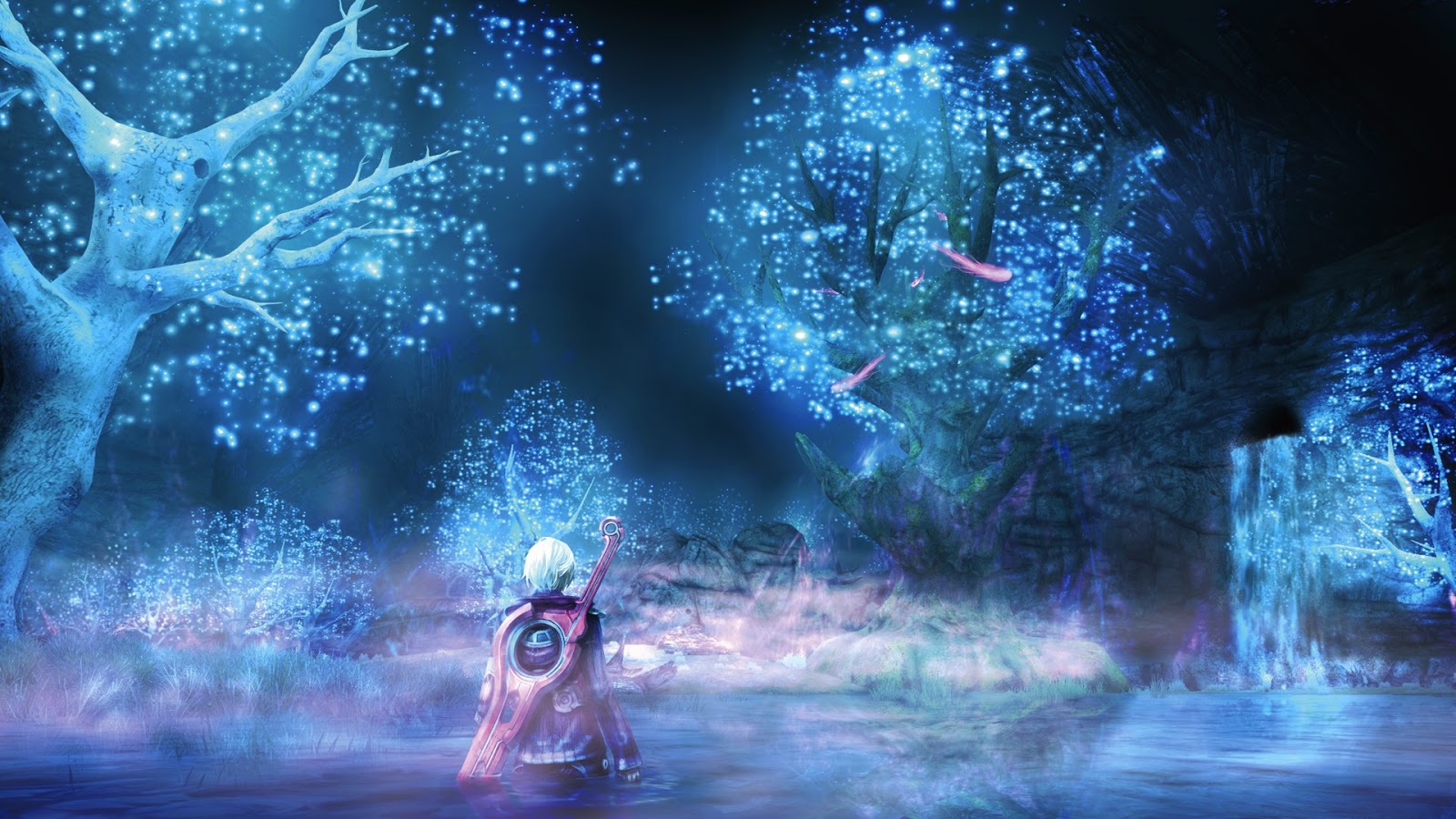
I still appreciate a game’s beauty but I am also well-aware that graphics and realism aren’t everything. The same star-laden skies of Xenoblade‘s Eryth Sea are just as impressive to me as the fiery flames I encountered on the manes of Suikoden‘s phantom steeds.
Xenoblade Chronicles told a story every time you set foot into a new part of the Bionis and the Mechonis. It told stories of secret wars. Other times, heavily guarded areas were draped in sparse, dusty, sepia-toned sections with mechanical, lifeless beings at every turn. But sometimes it told too much by way of obvious statements by its characters. And so it became a repetitive game — its storytelling visuals were undone by reaffirmations through characters dialogue and forced acting. This keen sense of an echo happened at various points during the game. One character would say something, and another would repeat it.
The conversations were infuriating to listen to, and portrayed an unbelievable level of naivety.
I found myself not caring at all about these robotic line delivery units called characters. Their relationships felt overly scripted and, in a beautiful world, they felt out of place. The sentiment of their struggles was fine in a textbook sense, but nothing more than that.
And without characters and their narratives for me to care about, any beautiful landscape was lost on me.
Sharp Writing and Smart Characters
Then, last year, a wonderful thing happened. Fantasy Life — a game that is as simple as JRPGs can get, but not on first glance — released. The game’s 12 ‘life’ options (read: job classes) that you could swap between at any time made its initial start deceptively complex.
Under its seemingly overwhelming hood is a game that is simple at its core: action-based combat, levelling up and a story. It also tasks players with doing lots of side-quests; the game’s entire narrative is built around mundane busy work. And yet, Fantasy Life was my favourite game last year and became a favourite JRPG of mine. It invigorated my waning interest in a genre that, over the years, had come to feel like I had a stubborn loyalty for more than a natural excitement.
All it took was some clever writing.
That’s not to say though that Fantasy Life’s gameplay is not engaging, because it actually embodies much more than just the sarcastic quips and character exchanges. It manages to build a small system that fuels a completionist desire, staving off boredom by introducing enough of a new crafting system or request in another job class. Then it places those goals just within reach without sending you too far out to get things done.
But it was the writing that was the strongest, and that stitched everything together. Even though the game was at times plagued with too many lines of text, Fantasy Life‘s writing never felt as though it was overcompensating like many mediocre games might do.
The game felt accessible. And even though it borrowed heavily from its JRPG predecessors — in everything from its expected snowy landscape locales and fiery mountain caverns to characters as cliché as dark magicians named Damien — a lot of its success fell to the writers’ acknowledgement of these tropes in a series of self-aware jokes and shout outs. The characters themselves were so cleverly sharp-tongued and personable that their over-the-top exasperation and reactions to everything were endearing and infectious.
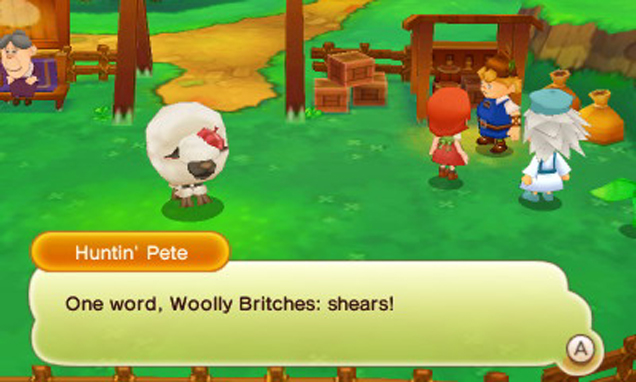
Fantasy Life cleverly focused a sense of discovery by crafting it as the story groundwork for its two main characters, while priming players to get as excited in its world as its own characters were. There’s the overly chatty and sassy visitor from another world exploring the wonders of the game’s home setting of Reveria for the first time, and then there’s you — the new recruit anxiously wishing to contribute to Reveria by finding your worth in adulthood through adventuring.
It’s this excitement, greatly owed to its writing, that made all those old areas common to any JRPG feel like fresh coats of paint.
Tolerating Tropes While Discouraging Others
Then there are those games that take themselves too seriously. Xenoblade suffered a little for trying to be too ambitious. At times, it was easy to forget that cast members were encountering lands that flourished on the bodies of dying Titans. The sheer scope of the setting alone was staggering and brilliant but, unfortunately, everything surrounding the setting became one giant JRPG trope. I was supposed to care about these characters struggling against fate, yet I couldn’t put myself in their shoes to feel any of their pain. Instead, I found myself (probably) unjustly pointing out their basic flaws.
On the other hand, there’s Tales of Graces F.
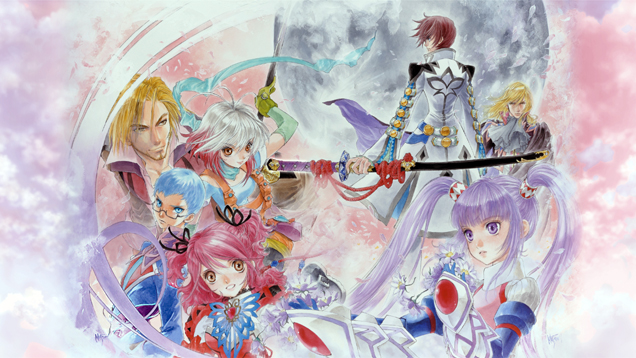
At their hearts, JRPGs often skirt the topics of strained friendships, and fancy the stories of small bands fighting against the odds. Tales of Graces F, like Xenoblade, is no different. Yet, my time with Tales of Graces F was much more enjoyable. It’s not that Tales of Graces F has a better story than Xenoblade. In fact, it’s pretty straight and narrow, riddled with all the cringe-worthy JRPG tropes you would expect from a setting in which childhood friends making pacts in the woods only to meet later on as enemies. The characters are as hilariously bad as they are straight-up hilarious. But what Graces F has going for it is the simple joy of fun.
Its characters take their in-game world, broken friendships and plight very seriously. But I never came away from the game feeling as though I had to take it seriously. Perhaps it’s just too laughable for me to honestly invest my emotions in, or maybe it did just enough to be considered “a light read” in the way its narrative is presented. A part of it, too, is that its characters have so much personality, that one of the weakest Tales games, storywise — and by some standards, JRPG-wise — became a breath of fresh air.
Less Fighting One Day, More Random Battles The Next
At the end of summer, I began Dragon Quest VI: Realms of Revelation.
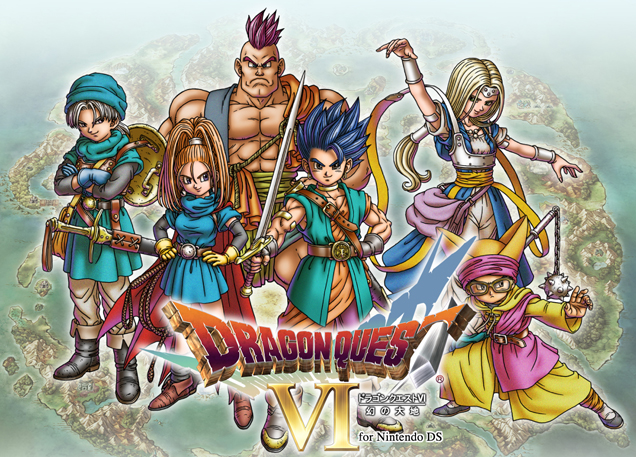
Dragon Quests IV, V and IX have told some of the most gut-wrenching and surprising tales I’ve experienced.
Dragon Quest VI began no differently, and I suspect it will end with my curling my mouth as I ponder its sadness. I distinctly remember taking a picture of a river turned to blood in DQVI‘s Dream World town of Amor. The event happened in the Dream World, with both DQVI‘s Real World and the Dream World intertwined in its
narrative, one realm affecting the other. It was quite a shock. My initial exclamation was: “they just don’t make JRPGs like they used to…”
And then there’s Dragon Quest VI‘s treatment of another JRPG staple: the random encounter. The minute games introduced me to visible map monsters, I was overjoyed. It’s one of the most welcome changes that some newer JRPGs have embraced. I didn’t want to go back, and the high frequency of encounters in Dragon Quest VI made those yearnings for an improved random encounter experience all the more noticeable. I tried going back a few times, but to no avail. The required patience is just too much.
Dragon Quest VI‘s encounters failed the moment they started interrupting my every move. These disruptions discouraged exploration because they felt like an endless loop: 10 seconds of movement launched into 50 seconds of battles. The stop-and-go nearly drove me mad, and I decided to give DQVI a year-long break.
Yet, I cannot say the same of another high-encounter/grind-fest of a game I started playing: Persona Q: Shadow of the Labyrinth.
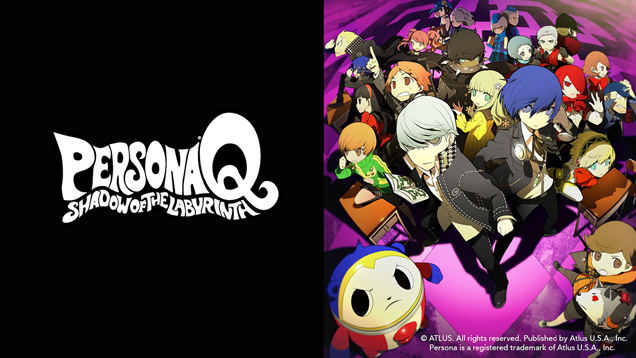
There’s just something more tolerable about Persona Q. It could very well be that the game makes no excuses for what it is, and that’s that it is a dungeon crawler. Persona Q makes crawling manageable. Floors are broken into sections to cover ground at your own pace with easy ways to exit. Then there’s the map-making: the tool to make all your investigations feel like achievements. My favourite part of the random encounters is that they’re not so random. Tougher, boss-level enemies called FOEs are visible on the map, often acting as pieces of a puzzle that your party members must avoid (and, later, when your party is strong enough, you may challenge the FOEs for experience and rewards). Normal, invisible enemy encounters utilise a radar system. Enemy radars gradually move from in-the-clear to in-the-red, preparing you to battle whatever shadow lies in wait (the Space Invader-esque icon alarm helps bury that would-be dread too).
So while Dragon Quest VI and Persona Q have very different approaches to what makes them whole — Dragon Quest VI with its fantastic but heavy, sorrowful story and Persona Q with its fan-service and funny character conversations — Persona Q is the one that I’m more likely to finish. Random encounters, along with endless grinding, secure the idea that some old ideas just don’t work for me anymore, contributing to my already wishy-washy feelings on the genre as a whole.
A Little Bit of Magic
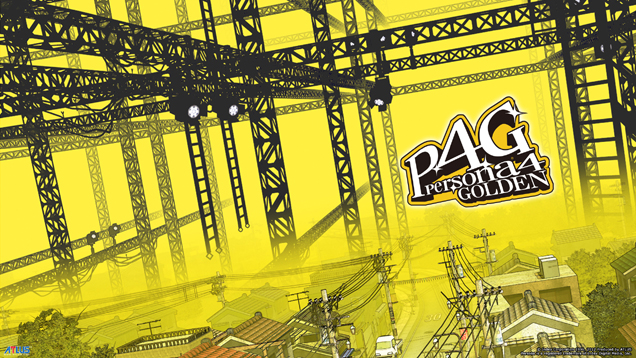
There are times I think the worst thing possible: that some more recent JRPGs have lost the ability to weave magic like their predecessors. No, there’s nothing wrong with MP bars. It’s their ability to craft engaging, well-written, fantasy novel-like quality experiences that not only encourage exploration in a grand-scale adventure but keep players interested in seeing the journeys to the end.
Some games are masters at taking these expectations and presenting them a little differently. Games like Persona 3 and Persona 4, while not relatively recent, have developed interesting ways to handle the End-of-The-World scenarios of JRPGs. The games are great at altering ideas of grand, traditional JRPG fantasy adventures (like many entries in the Final Fantasy series with stories of knights and mages, for example), instead focusing on a closer examination of its characters’ psyches. These personal stories, set in cities or small town communities, lend to a feeling of a smaller scale adventure and familiarity on the surface. Both the settings and the problems faced by their characters mirror real-world aesthetics and believable, relatable struggles — from bullying to self-esteem problems in interpersonal relationships, just to name a few. The games prove demons can be fought right in alternate realities of everyday schools, and there’s an emphasis on battling manifestations of personal demons born of insecurities and fears.
The Persona games work because of their strong reliance on building worlds off of humanity, peering closely into the character-driven narratives. Humans and their fears distort the settings. But it’s the humans that become more important than the settings, which instead play minor roles to the complexities of human nature. It’s amazing storytelling to be sure, but one that dissolves the notion of a party traversing across traditional fantasy JRPG worlds in search of answers while cleverly hiding and changing the perception of battling larger-than-life scenarios (even though these themes still exist in the worlds of Persona).
This approach extends to other games in the Shin Megami Tensei universe. While fantastic, refreshing takes on old JRPG themes, some of the more recent titles — like Shin Megami Tensei: Devil Survivor 2 and last year’s nostalgia-driven Bravely Default — leave me with a gnawing feeling that I’m losing touch with what I once loved and knew.
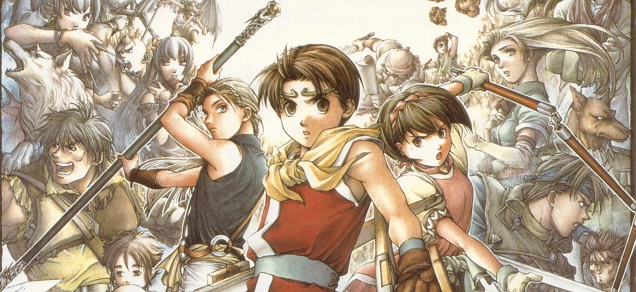
I have already started playing through some older, more traditional JRPGs that I missed. They’re not all perfect, of course. But the writing and the characterizations often feel tighter, the stakes higher, and the stories more believable with little bits of humour injected at just the right proportions. The charms of older games like Suikoden — even with its flawed, clichéd ending — and the amazing, complicated Suikoden II are reminders that I’m missing that little bit of magic in some of the newer JRPGs I’ve played.
The Future of JRPGs
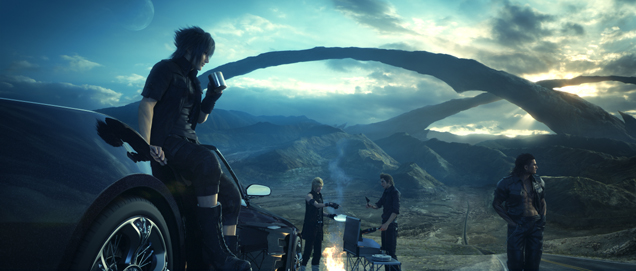
Where does all of this leave me and my future relationship with JRPGs?
It’s things like the next numbered Final Fantasy that worry me, although early news and previews have been hopeful. I cannot shake the feeling, though, that when I look at it, I see it headed in the direction of Xenoblade Chronicles.
Things like the next Persona worry me, too, and feed on my pessimistic side that wonders: just how long can a good thing last?
Even so, with 2015 poised to be a great year for fans of the genre, I am hopeful. I’m hopeful for Final Fantasy Type-0, Persona 5 and everything in between… Hopeful that this simmering excitement will be justified. And I’m hoping that my one rule of lowering my expectations so as to not be disappointed won’t need to be applied here.
Ultimately, I’m having a hard time reconciling my desire to experience a sprawling epic tied together by personal stories with wondering if that’s even what I need anymore. I want JRPGs to move beyond what I’ve come to expect of them. Some, like the aforementioned Persona series or even the quirky little soccer JRPG Inazuma Eleven, do so brilliantly. And yet, I don’t only want to be comfortable in a secure relationship; I’m tiring of its formulaic nature.
What I will continue to do, and perhaps the only thing I can do, is take them as they come — one JRPG at a time.
N. Ho Sang has made contributions to Entropymag and SF Signal. Follow her on Twitter at @Zarnyx.
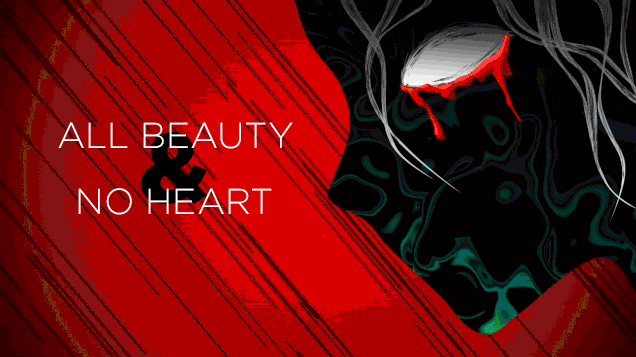
Comments
24 responses to “JRPGs, You’re Better Than This”
Seems more like the reason is because of bad anime writing.
Makes me wonder why I continue to watch anime series with terrible harem tropes shoe-horned in to what could otherwise be fantastic stories.
Seems like the vast majority of japanese game and anime studios are just plain terrified of risks, so they stick to what they knows will bring in people every time, either not realizing or not caring that the truly big hits are ones that do things differently.
Though they’re hardly the only ones guilty of thinking that way in the games industry.
Tales of Graces F – https://youtu.be/wZLWFy4pbTY This victory skit. Had me in stitches.
Seriously don’t mind bad writing when they keep it fun and light hearted with stuff like this
I’m definitely not feeling as engaged by JRPG stories anymore. The characters I have little to no connection to anymore and as was in the article, plot twists have been done a dozen times before. The developers need to realise this though, yeah FF XV can be as flashy as you want, but the reason I love older FFs is the stories and characters and how they develop. FFVIII is one of the weakest FFs imo even though the gameplay is superior to FFVII, the story and characters trail off at the end of disc 1.
I believe that JRPG’s have a lot more heart and soul than Western RPG’s.
I feel the last JRPG that had any sort of heart was probably Ni No Kuni. There have been some decent JRPGs released in the past few years but they are definitely lacking the warm fuzzy centre that so many games from back in the day had, the ones we remember fondly. And I believe setting and graphics aren’t even the major problem. The Last of Us, and especially Left Behind, oozed warm fuzzies in those scenes that called for it and they were, for all intents and purposes, a post apocalyptic zombie world. If I had to guess I would say that lately JRPGs have been trying too hard to be something they’re not.
I really wanted to like Ni No Kuni, but it was basically a Ghibli film. And I dunno, maybe I’ve overdosed on them, but they’ve all started to run together for me. 🙁
It did start out a bit slow as far as options go. It was well into the game before you could do all of the things. The game however was good about not pressuring you into following the main story.
Yeah, mechanically I was kinda digging it, especially when the pokemon side of things started unfolding. I just wasn’t as… ‘enchanted’ with the Ghibli magic of the old child-turned-saviour story.
I really wanted to like Ni No Kuni, but it wasn’t like a Ghibli film for me. It was some terrible hybrid of Pokemon and Dragon Quest with a Faux-Ghibli veneer. Probably would have stuck with it had the gameplay not been so terrible.
Xenoblade did a lot of good for refreshing the mechanics of the jrpg, but it’s story was trapped in the past.
BUT the Last Story and Pandora’s Tower were just as important. The three of this games together were truly something.
I still need to pick up The Last Story but I always wondered whether Pandora’s Tower was worth getting or not. I’m guessing it is?
Pandora’s tower is pretty great, it plays like a 3d castlevania but is actually good. It also has an interesting/fucked-up story which avoids your typical jrpg tropes (mostly).
I’ve seen it languishing in jb hifi for not much money, it’s definitely worth a go.
Watched some vids looks pretty good. pity its on Wii
I don’t see how that’s a problem, surely wii’s are virtually free these days!
Now that JRPGs are a lot more common in the West, I’ve become a lot more discerning about them and am finding a similar problem. It also may be just that I have been playing JRPGs for a very long time and have seen a lot of systems, stories and art styles so now it’s getting harder to find something new and exciting. Oreshika is definitely proving to be a really fun JRPG for me though. It strikes the balance of story, art and gameplay that tickles my fancies.
It’s funny that Tales of Graces F’s story got mentioned as I felt it wasn’t well handled and had a lot of unnecessary plot. The last third was the strongest part but the extra story felt a bit unnecessary and came across as more pandering to fans rather than continuing the plot. There were also a lot of things that were mentioned that made sense to the characters but weren’t explained to the players until a long time after. (Foselos, cryas and valkines in particular) The skits were definitely the best part though and did more for world and character building than the story itself.
White Knight Chronicles PS4 game would be amazing and a new Ni No Kuni would be great – but as a long time jrpg player I do feel like they don’t have as much life and story in them because the latest jrpg’s have been a bit too ambitious and ended up feeling flat and unfinished instead.
I think you’re the first person I’ve ever heard with a good word to say about White Knight Chronicles. (Although I didn’t mind it myself.)
I liked Ni no Kuni for a while, but eventually the training aspect became too burdensome.
It was such a freaking good game it just required many, many hours of playing. The online aspect of white knight is still some of the most unique gaming experiences I’ve had.
J/RPG’s more perhaps because they are so story-centric, but I feel just about every game these days suffers from poor story telling/writing. I think it is becoming clearer that the industry needs a separate Story Writer occupation. Plenty of games out there that had such wonderful scripts and character dynamics/relationships because they had an actual writer on board.
JRPGs aren’t really about the plot, though. They’re about the characters and their interactions. Which is why something utterly cliche like Tales of Graces is still entertaining as a JRPG, even though the characters themselves are fairly standard as well. Their interactions are interesting. It’s why every other JRPG developer has started picking up Tales’ skit concept. A really good plot with boring characters is often going to struggle, but a really standard plot with characters and inter-character relationships that are interesting will keep you going. Case in point: one of my personal favourites is Grandia II, and that game’s utterly linear and basically only survives on the strength of the character dynamics and the battle system. Suikoden is another example of this – it’s the characters that make it, not the plot.
It’s actually one of the big differences between the way that western and eastern developers tend to approach RPGs. WRPG developers start with a setting, and then create an appropriate plot concept and then characters that fit that setting and plot as necessary. JRPG developers start with the characters and character designs, then build out the relationships between them and the plot and setting around those characters. It’s why when you see a WRPG reveal, they’ll start by talking about the amazing places you’re going to go and things you’re going to do, where a JRPG reveal almost always starts with the characters being revealed.
I honestly couldn’t disagree more with the author of this on Xenoblade. The plot was far more interesting and complex than most recent JRPGs and the setting was something I’d never seen before. Additionally, it’s one of the only games I can think of in the last five to ten years that made me stop and go ‘wow’. Specifically, getting to Bionis Leg and realized how enormous the area was, and then seeing Mechonis off in the distance. The game looked amazing for something running on the Wii and the technical side of it would be fascinating to dig into. I also find it interesting that the author liked Satorl Marsh the most – for me that part of the game was awful. Hated that area. Eryth Sea combined with a party composition change (Reyn -> Dunban, playing as Melia instead of Shulk) was the point where everything clicked for me.
I also find that while I really appreciate Persona, I can’t get into the games. I’ve tried. The time management element of it stresses me out too much. It was weird that I enjoyed Xenoblade so much, actually. Open world stuff doesn’t do it for me at all. I like linearity and I like constraints. I want to wring every drop out of a game, and so when it opens out or gives me tons of options to play it whatever way I want, I seize up. It’s been the sticking point for several otherwise fine games for me, actually. FFXII lost me twice primarily because everyone has the exact same progression and aside from some natural stat tendencies is completely generic and doesn’t have anything to them that suggests a certain class or role. I had to play with a guide to force myself to finish it. I stopped playing FFXIII because I got to Gran Pulse where the game opens out, i.e. the part everyone says the game improves, and I suddenly stopped enjoying it and didn’t know what I wanted to do and never went back. I’ve even managed to sidetrack my progress in Tales of Hearts R recently because the instant I got the airship my OCD kicked in and I want to do every sidequest and whatnot before proceeding. And so naturally I stopped playing. I think it’s the loss of or inability to get momentum. I like to feel like the game’s progressed in a tangible way whenever I put time in.
You want a good story which has good writing, music and combat?
The Legend of Heroes: Trails in the Sky!!!
It got me going back to school and WAS WORTH EVERY CENT!!! (The game in terms of cent)
I think the issue, is that I ‘m not sure Japanese gaming market (or the entire Japanese market for anything) wants “NEW”, “INNOVATIVE” or “DIFFERENT”. Everytime I talk to Japanese people, it does seem like the average gaming crowd is content with more of the same, and developers (other than the AAA multinationals like Capcom etc) don’t want to risk it by treading outside the norm….
The same thing that’s dooming Japanese industry, is dooming Japanese gaming.